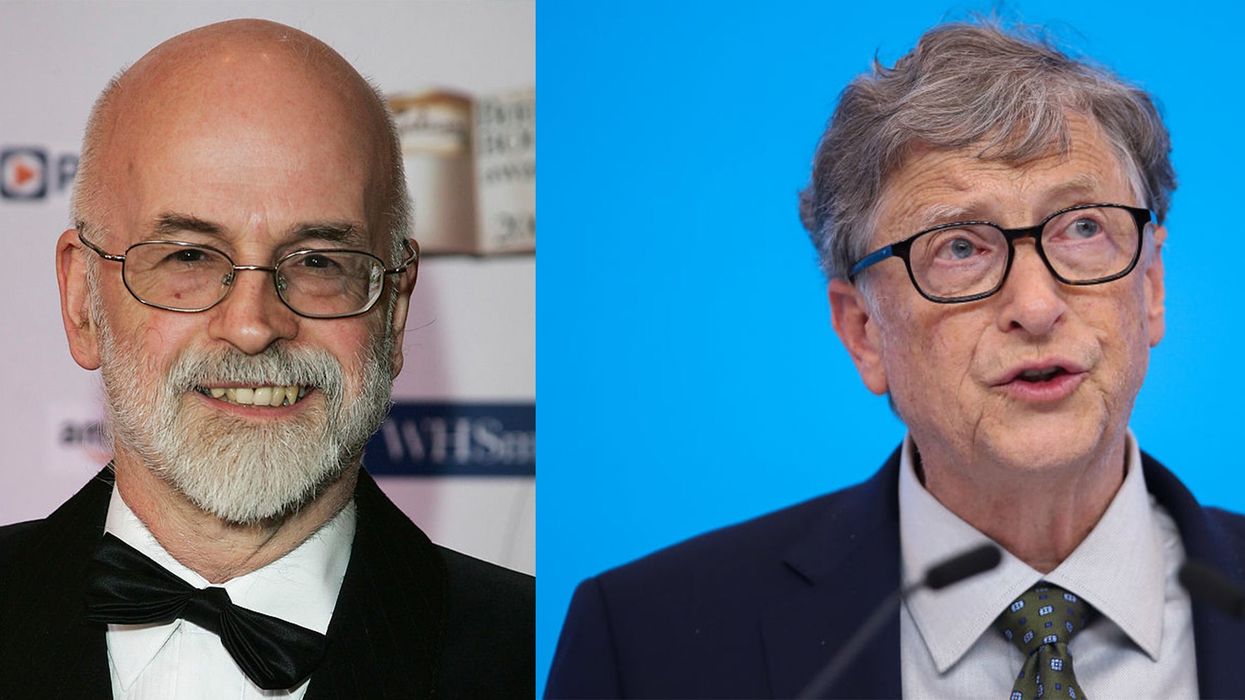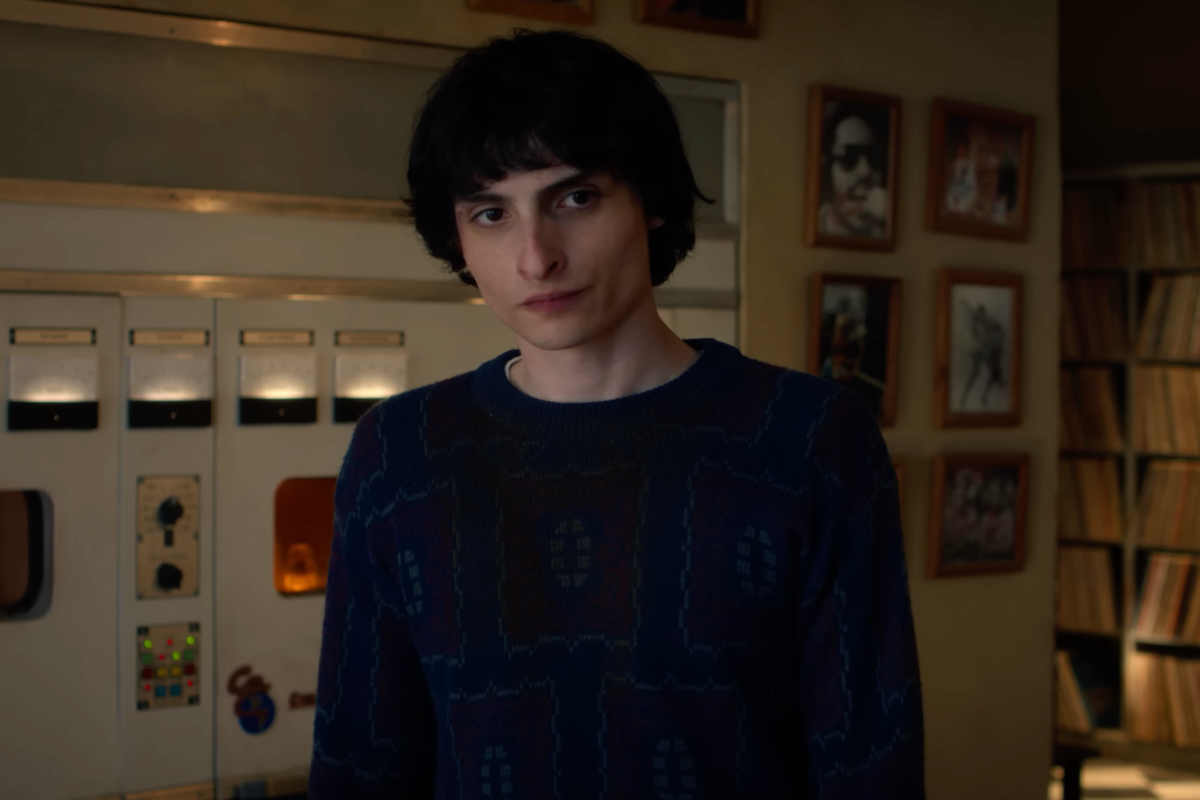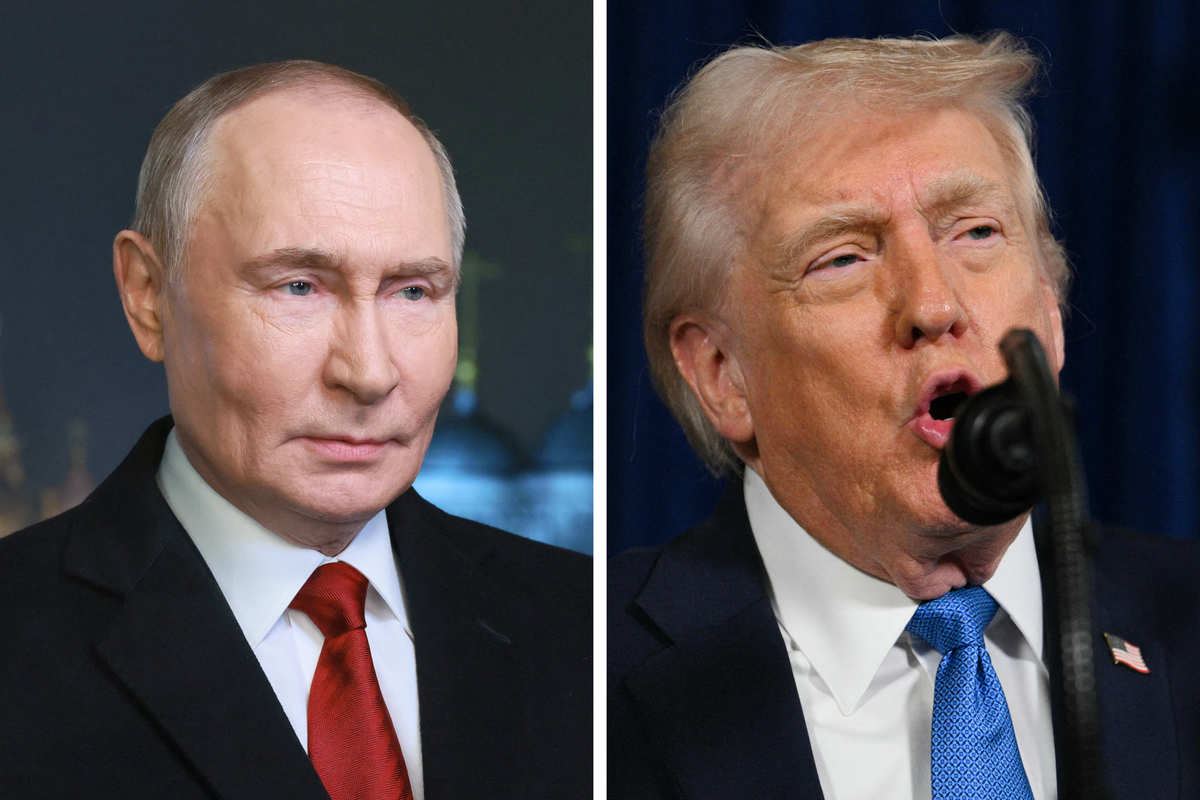News
Greg Evans
May 29, 2019

Picture:
Gareth Cattermole/Lintao Zhang/Getty Images
Fake news is hardly a new sensation but, thanks to the internet, it has been allowed to spread like wildfire and has potentially shifted the way that we live, think and process information.
It's hard to really pinpoint when the fake news hysteria started, but it certainly wasn't made any better by Donald Trump and his many tantrums on negative stories about himself.
While we can't exactly say where it all began, it would appear that the late great fantasy novelist Terry Pratchett saw this whole thing coming - and even Bill Gates didn't believe him.
In an interview between the pair which was published by GQ in 1995, Pratchett played clairvoyant and told the Microsoft co-founder that the internet would help legitimise fake news.
Pratchett says:
Let's say that I call myself the Institute of Something and I decide to promote a spurious essay that says that the Jews were responsible for the Second World War and that the Holocaust did not happen.
And it is published on the internet and is available in the same terms as any historical research that has been subject to peer review and so on.
There is a kind of estimated parity for the network information. It's all there: there is no way to discover if it has any background or if someone has invented it.
However, Gates wasn't so convinced by Pratchett's predictions.
Not for much longer. Electronics gives us a way to classify things. There will be authorities in the network and, since an article is contained in its index, it will mean something.
For all practical purposes, there will be an infinite amount of text out there, but you will only receive a portion of text through certain levels of address, such as a friend who says 'hey, read this' or a brand that is associated with a group of arbitrators, or an expert in particular, or consumer reports, or the equivalent of a newspaper...
They will point out things that are of particular interest. The way you can verify someone's reputation will be much more sophisticated on the web than in today's printed text.
The interview has been unearthed thanks to Marc Burrows who is in the process of writing a biography on Pratchett. Burrows shared the interview on Twitter where it soon went viral and people have a lot of thoughts.
Yet, later in the interview, Gates appears to predict how we would consume TV and movies in the future, so it's probably fair to call it evens between these pair of geniuses.
HT The Poke
Top 100
The Conversation (0)













